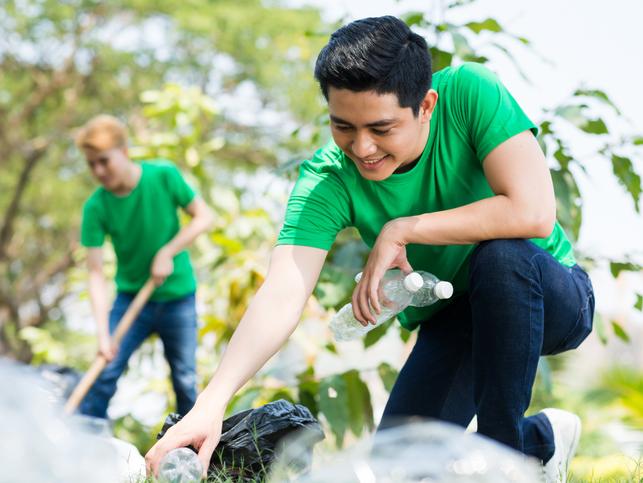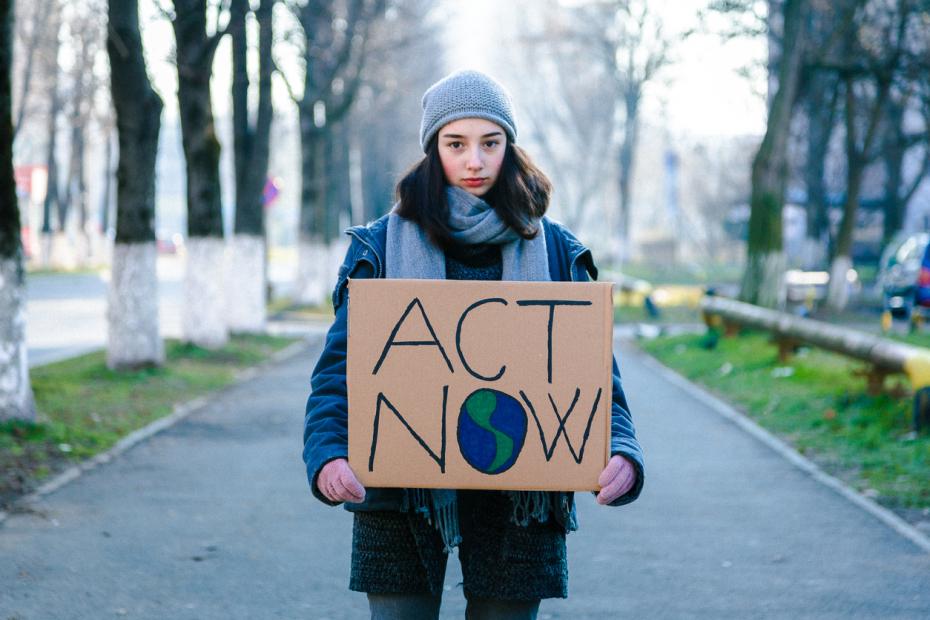Climate change is shaping the lives of present and future generations in increasingly significant ways. A large proportion of young people have real concerns for their future in the context of the climate crisis, research reveals, and this is impacting their mental health.
We have been working in responsible research and innovation (RRI) with UK and EU universities for the past eight years. RRI asks researchers to consider the futures their research may help to create, and to explore who and what might be impacted within those futures, and in what ways. Through this work, we became increasingly aware of the climate change anxiety that many young researchers experience. Conversations with students and colleagues confirmed that these anxieties were having a major impact on mental health and well-being.
As RRI practitioners, we take a reflexive approach to our work. For us, this has meant working with an ethic of care towards our researchers, ourselves, nature and the planet. It also means leaving space for “response-ability” (the capacity and latitude to change course in response to interactions with people and things), as US scholar Donna Haraway would term it. Because of this approach, we wanted to develop a proactive response to the rising tide of eco-anxiety in our community.
There is a growing body of evidence suggesting that “nature connectedness” – in other words, feeling connected with nature – can support physical and mental health and well-being. In 2022, together with nature-based facilitator Roy Kareem, we developed a programme for PhD students incorporating nature-based and creative experiences. We applied for funding, and in 2023, Resilience Through Nature was born.
The Resilience Through Nature programme supports PhD students to explore personal and collective questions and anxieties about climate change and ecological collapse. Together, they develop a sense of purpose and agency to help them navigate the uncertainty of the environmental crisis and feel more connected to nature and each other.
The programme first ran in 2023; a second edition ran in 2024. Each cohort joins a growing community of postgraduate researchers from diverse disciplinary and personal backgrounds with a shared interest in nature, climate change and the ecological crisis.
- Spotlight guide: A greener future for higher education
- A five-step framework to integrate sustainability into higher education
- Greening your university is not optional; it’s urgent
Nature doesn’t have to be far away
As a community based in a city university, we wanted the natural environments in which we ran our programme to be accessible to students via public transport. This was important for several reasons: transport sustainability – ensuring that our students could revisit these places any time they wanted in the future – and accessibility. By keeping sessions local, we involved people who had caring responsibilities who might have struggled to attend activities further afield. One of our regular meeting points was a specific quiet area in a city centre park. This created an anchor for our cohorts; we could simply say “let’s meet at our spot”.
Sustained engagement
Many nature connectedness programmes involve intense, expensive residentials. These experiences can feel transformational in the moment, but the learnings from them are often difficult to incorporate into our routines. We believe that regular and sustained engagement creates a deeper connection between community members and enables the integration of this kind of practice into researchers’ daily lives.
Instead of a one-off residential, consider regular meet-ups, afternoons or days in nature over an extended period. Some of our participants commented that while it can feel impossible to make space for this kind of work as a one-off, having a regular slot in the diary meant that they were far more likely to make it, and having a meet-up always on the horizon helped those learnings stay present in their day-to-day.
Care
Care has been a crucial aspect of the success of our programme. We have been thoughtful and caring in our decisions about locations, activities, scheduling, food, inclusivity, language and communication.
For example, we provided nourishing and delicious food each time we met and remembered if there was something that participants really enjoyed (shout-out to avocado hummus!). We also made sure that the dates and times we chose worked for as many of our group as possible, rather than giving a “take-it-or-leave-it” date and time. By connecting with our students as humans and collaborators, not just participants, we have built a genuine sense of community that has flourished beyond the programme.
In our experience, care is not usually recognised as a valuable skill in work environments – it is often rendered invisible or taken for granted. We believe it is not just valuable, but essential, in all aspects of work. It should be recognised and celebrated.
Intersectionality
Resilience Through Nature attracts a very diverse cohort of students for different reasons. Perhaps the climate crisis and eco-anxiety is the initial spark, but for many of our community, the programme is an escape from the pressures of academic life and their particular research cultures. For some international students, it offers the chance to build connections in a new city and country. For others, they find supportive staff who are not involved in their research, and this opens doors to opportunities beyond their PhD project. The diversity of our community has become a source of learning for everyone involved – us included!
You might assume that a programme like this that responds to eco-anxiety might not have been a very cheerful endeavour, but in reality, it was full of joy and wonder. To capture and communicate what the experience felt like, film-maker Adam Laity worked with us and our first cohort to make a film about it.
After two cohorts, the project has not continued in its current form. Some things will only happen once or twice, and that’s OK – as ever, we remain flexible and “response-able”. We are now integrating what we have learned into our other programmes for training and education. Most excitingly, participants from the two cohorts have continued the work themselves, organising meet-ups in natural spaces to mark the passing of the seasons. With each event, they invite new people to join, building on the foundations of the original programme to share resilience through nature with an ever-growing community of academics in the making.
Top tips for introducing nature-connectedness to your programme or institution
Trust nature: it is easy to overschedule and fill the time available with too many activities. Remember to make space to just “be” in nature and to experience it with all the senses.
Connect locally: we are now working with a local rewilding project, Belmont Estate, which hosts nature-connectedness sessions with us. This helps our students feel connected to a wider community of concern for nature and the environment, and see progress towards repairing the natural world on a local scale.
Think creatively: working with artists and arts practices stimulates our brains and bodies in new ways, improving well-being and helping us to connect with the natural world.
Nurture the mycelium: a specific project sometimes lives in the alchemy of a particular group of people at a particular point in time, and can be difficult to replicate or sustain. Instead, think about the network of activity, people, skills and resources that have been connected during your project and how you can help support them to continue the spirit of the work in ever-evolving ways.
Just get started: it may feel difficult to get going, and you may feel you are not equipped, but there are lots of activities online that you can draw from. Pick something small and give it a go!
Mireia Bes is a public engagement associate, and Vivienne Kuh is a lecturer in responsible innovation, both at the University of Bristol.
If you would like advice and insight from academics and university staff delivered direct to your inbox each week, sign up for the Campus newsletter.




comment